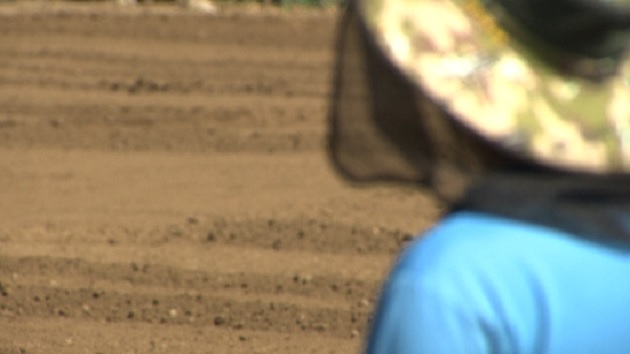
The scale of damage to crops from natural disasters is growing every year.
To protect against losses due to typhoons, drought, and floods, crop insurance is a big help to farmers.
However, only a limited amount of farmland is insured in Jeju.
Mike Balfour reports.
[slug] 3,300 ha of farmland damaged by typhoon Soulik in 2018
3,300 hectares of farmland was damaged by typhoon Soulik last year.
The scale of damage to crops from natural disasters, such as typhoons and drought, is increasing every year.
[slug] Crop insurance compensates up to 80% of damage
Up to 80% of damages from natural disasters can be covered by crop insurance.
Governments encourage farmers to buy the insurance.
[slug] Insurance premium paid by government 50%, local government 35%, farmer 15%
50 percent of insurance premium is paid by the national government, 35 percent by the local government and the remaining 15 percent by the farmer.
[slug] Premium for mandarin farms by farmer: \40,000 per 3,300 sq meters
Premiums vary by type of crop.
For a mandarine farm, farmers pay about 40,000 won per 3,300 square meters.
This year, the range of crops covered by crop insurance was extended.
Radish and carrot crops can now be covered by the insurance.
[slug] ?\29.6B of damage covered by crop insurance in Jeju in 2018
The aggregate amount compensated in Jeju was 29.6 billion won last year.
[slug] Compensation for mandarin, bean, buckwheat up to 500% of premium
Notably, compensation for mandarin, beans and buckwheat strongly hit by various natural disasters was 100 to 500 percent of the premium.
[slug] Farmers reluctant to buy insurance for complicating procedure to file claim
But many farmers are reluctant to buy the insurance due to the complicated claim process.
Only 27 percent of local farmers are insured.
[slug] 27% local farmers insured
That’s lower than the national average of 33 percent.
[Reporter] Mike Balfour
[Camera] Kim Yong-min
Along with changes in climate, the scale of damage from natural disasters is growing every year.
Therefore, safety nets that support crop insurance are needed.
Mike Balfour, KCTV





